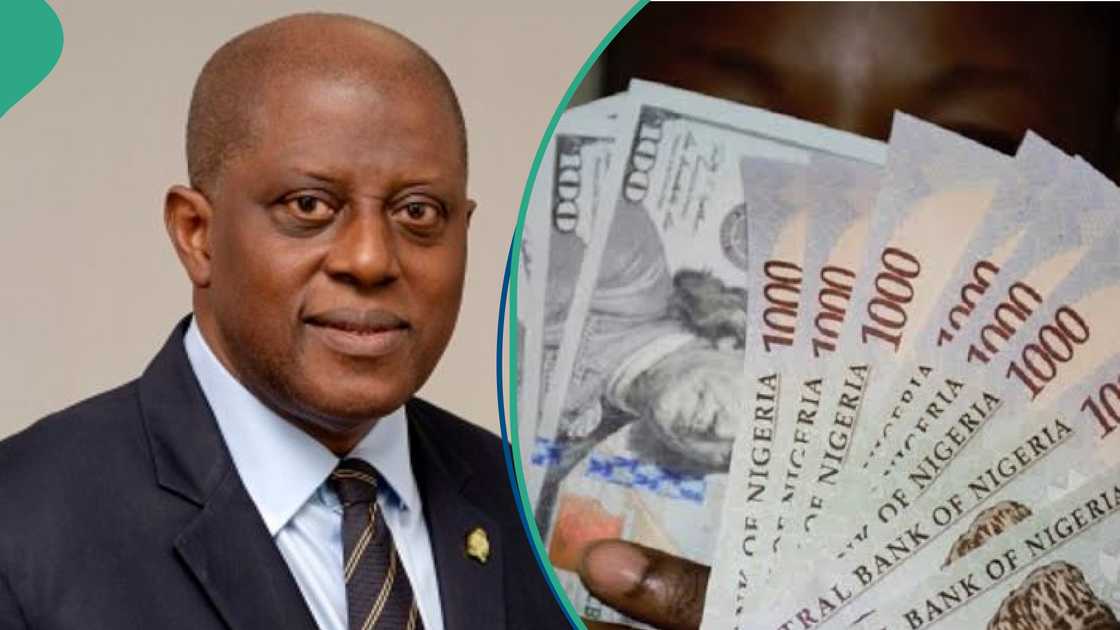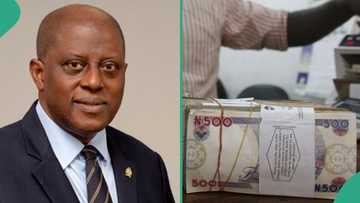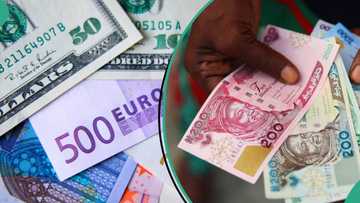From Frying Pan to Fire?: How Naira Lost Over 50% of Its Value After Cardoso Took Over From Emefiele
- The naira's value has dropped by more than 50% since Yemi Cardoso took over as governor of CBN a year ago
- In spite of this, the value of the foreign exchange reserves has gained significantly by 12% within this period
- The continuous external pressures have overshadowed the CBN's efforts to mitigate external shocks and increase liquidity
Legit.ng journalist Zainab Iwayemi has over 3-year-experience covering the Economy, Technology, and Capital Market.
Since Yemi Cardoso became the Central Bank of Nigeria's (CBN) governor a year ago, the value of the naira has decreased by about 50% compared to the US dollar, despite a notable increase in Nigeria's foreign exchange reserves.

Source: UGC
The FMDQ data indicates a significant decline from September 22, 2023, at N747.76/$1 to N1,541.52/$1 by September 20, 2024.
Nigeria's foreign exchange reserves rose by 12% during this year to $37.39 billion, the highest amount under President Bola Tinubu's administration; despite this, the Naira's depreciation continued.
The CBN's efforts to manage external shocks and boost liquidity have been overshadowed by persistent external pressures and internal budgetary imbalances.
Cardoso tried to save the naira
After coming to power on September 22, 2023, Cardoso made a number of adjustments with the intention of boosting market openness, decreasing inflation, and strengthening the Naira. These methods haven't, however, yet produced the intended stabilization.
Speaking on Cardoso's performance, different analysts shared diverse viewpoints to Nairametrics.
Development economist Dr Aliyu Ilias tagged Cardoso's plan "topsy-turvy," and attributed the current marginal decline in inflation primarily to harvest season.
“He is sacrificing growth because he wants to reduce inflation. I will score him below average. He needs to do more and be more strategic with his approach,” Ilias stated.
Meanwhile, financial expert and founding partner of McBrain & Company, Brain Essien, said the president hasn't done too badly considering the challenging economic climate that Cardoso inherited.
Essien commented:
“His objective was inflation-targeting, and so far, so good; we have had two consecutive decelerated inflation, which is good.”
Essien advocated for halting dollarisation and prioritising the naira’s value within the economy.
“The CBN should look for more creative ways to strengthen the naira itself. Or else, it will keep sinking against the dollar, and there is very little we can do about it,” he warned. He also recommends maintaining the current Monetary Policy Rate (MPR) of 26.75%, cautioning against adjustments exceeding +/- 25 basis points.
Currency emerges among top worst-performing
Bloomberg has reported that that among the top 10 underperforming currencies in the world is the Nigerian naira.
Africa is home to five of the ten currencies with the worst performance, including the naira, the Zambian kwacha, and the Angolan kwanza, the Journal reported.
Many reasons contributed to the fall in the value of African currencies, including economic challenges, unstable commodity prices, inflationary pressures, and a lack of dollar liquidity.
PAY ATTENTION: Сheck out news that is picked exactly for YOU ➡️ find the “Recommended for you” block on the home page and enjoy!
Source: Legit.ng



